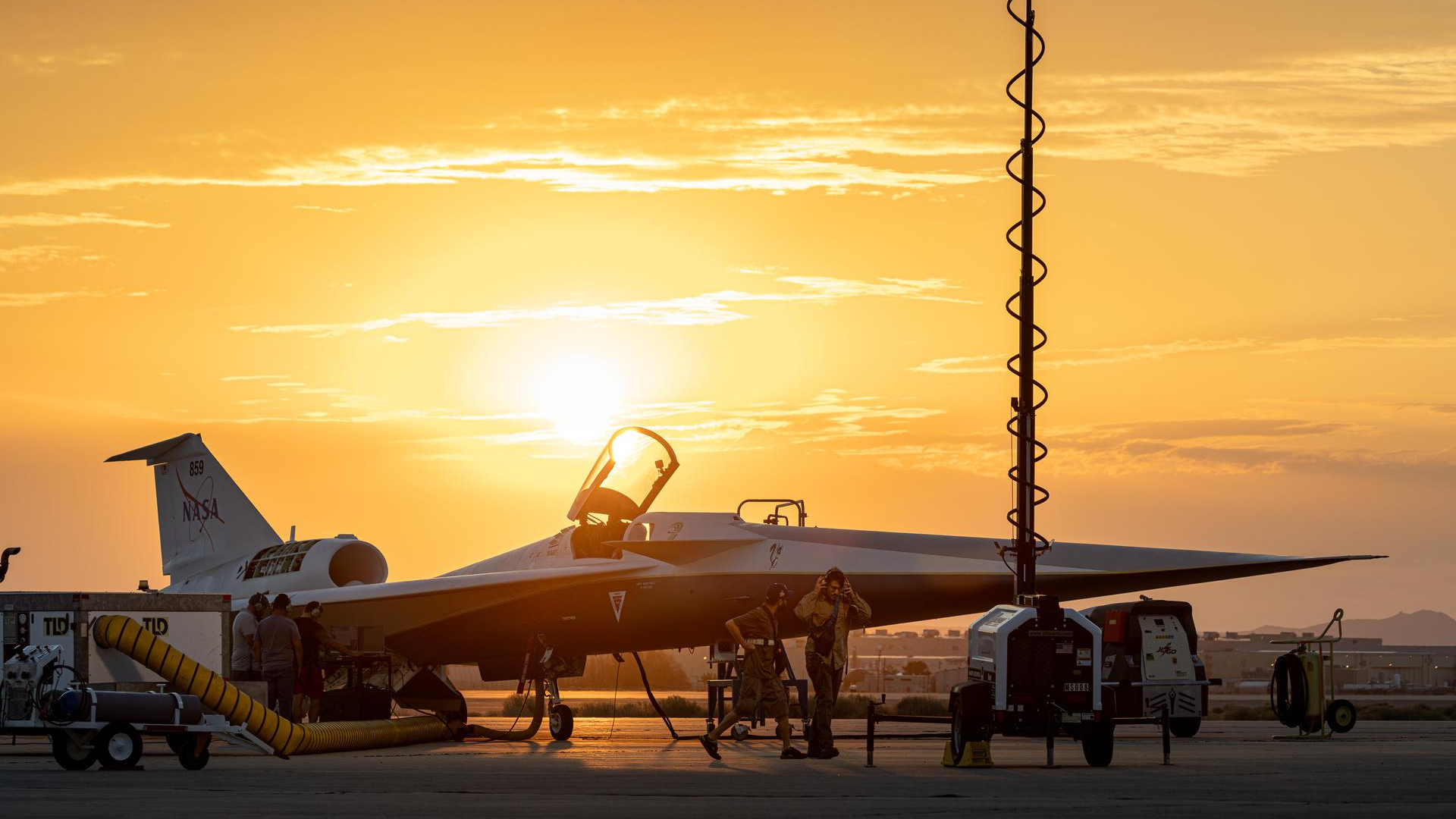'Fly Me to the Moon' director on faking the real and fake moon landing (interview)
'I trust that the audience is intelligent enough to discern what was historic and what's the fictional part.'
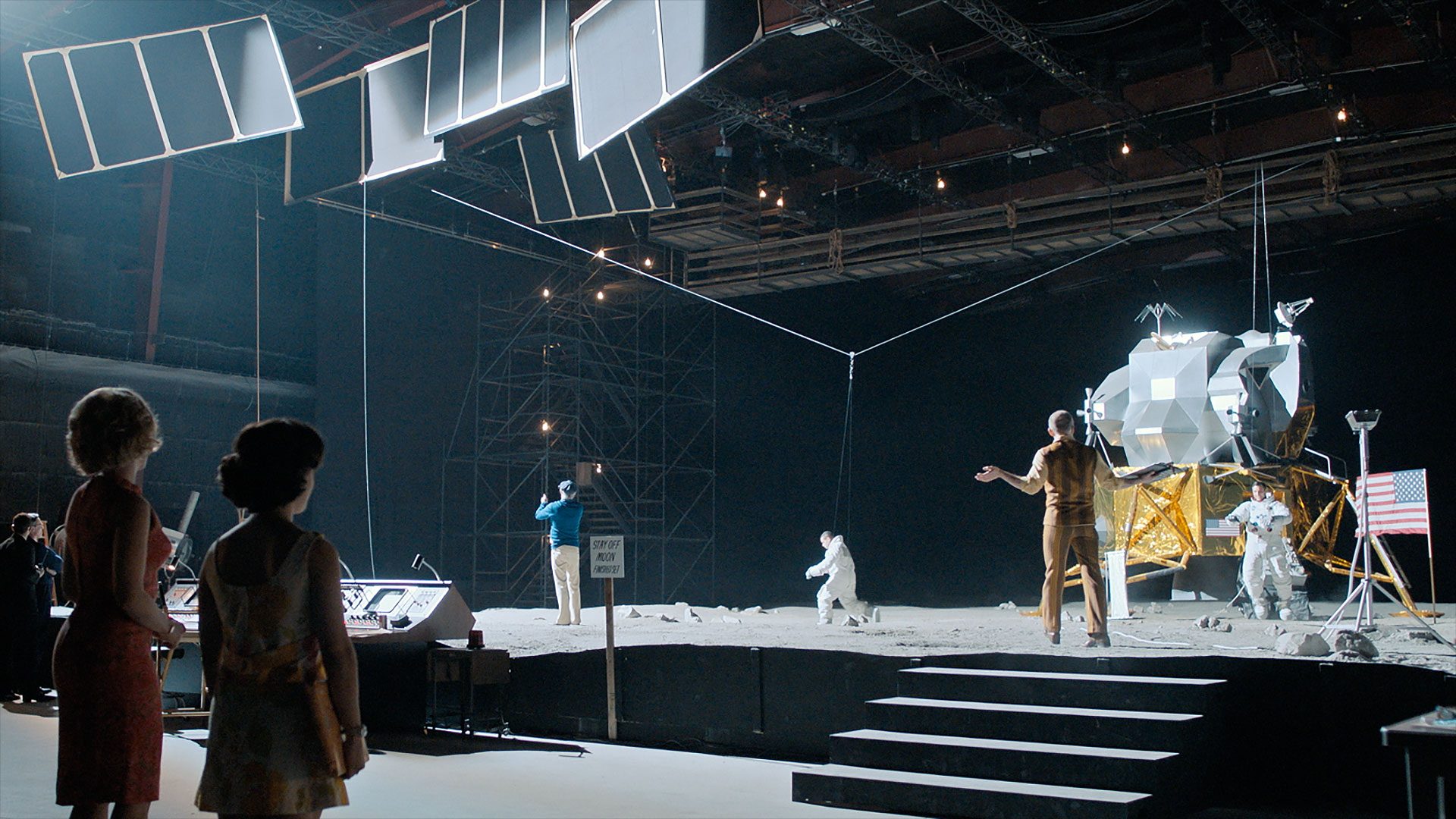
For his new movie "Fly Me to the Moon," director Greg Berlanti faked the historic first moon landing. But fear not, space fans, that does not mean what you might think it means.
Despite the trailers and the taglines ("Will they make it or fake it?"), anyone with concerns that the film gives in to the "moon hoax" conspiracy theory need not worry. In fact, if you are a space enthusiast or remember watching Neil Armstrong and Buzz Aldrin come "in peace for all mankind," then "Fly Me to the Moon" may be your next favorite film.
"Everyone who worked on this movie — including our associates at NASA — are incredibly huge fans of the Apollo program and wanted to honor with this movie that program," said Berlanti in an interview with collectSPACE.com. "We are definitely using a modern prism of what's become too in vogue these days, which is this notion of these conspiracy theories, but ultimately, the movie is about why the truth is important."
"The movie really supports the accomplishments of the 400,000 to 500,000 men and women who worked on the Apollo program, to the point where it celebrates it, too," he said.
Not that "Fly Me to the Moon," which opened in theaters on Friday (July 12), is a documentary. The film is a fictional romantic comedy ("rom-com") set against the backdrop of a sometimes accurate, sometimes not depiction of the Apollo 11 mission. Channing Tatum stars as launch director Cole Davis (replacing, rather than depicting, the real-life Rocco Petrone), who clashes with the ideas of Madison Avenue marketing maven Kelly Jones, played by Scarlett Johansson.
"It is historical fiction," said Berlanti. "I trust that the audience is intelligent enough to discern what was historic and what's the fictional part."
"So much in the movie, and so much of the time and effort and energy of the film, really goes into recreating the amazing things we were able to recreate. That is, what people saw with their own eyes about what was, in fact, accomplished," he said.
Related: Apollo 11: First men on the moon
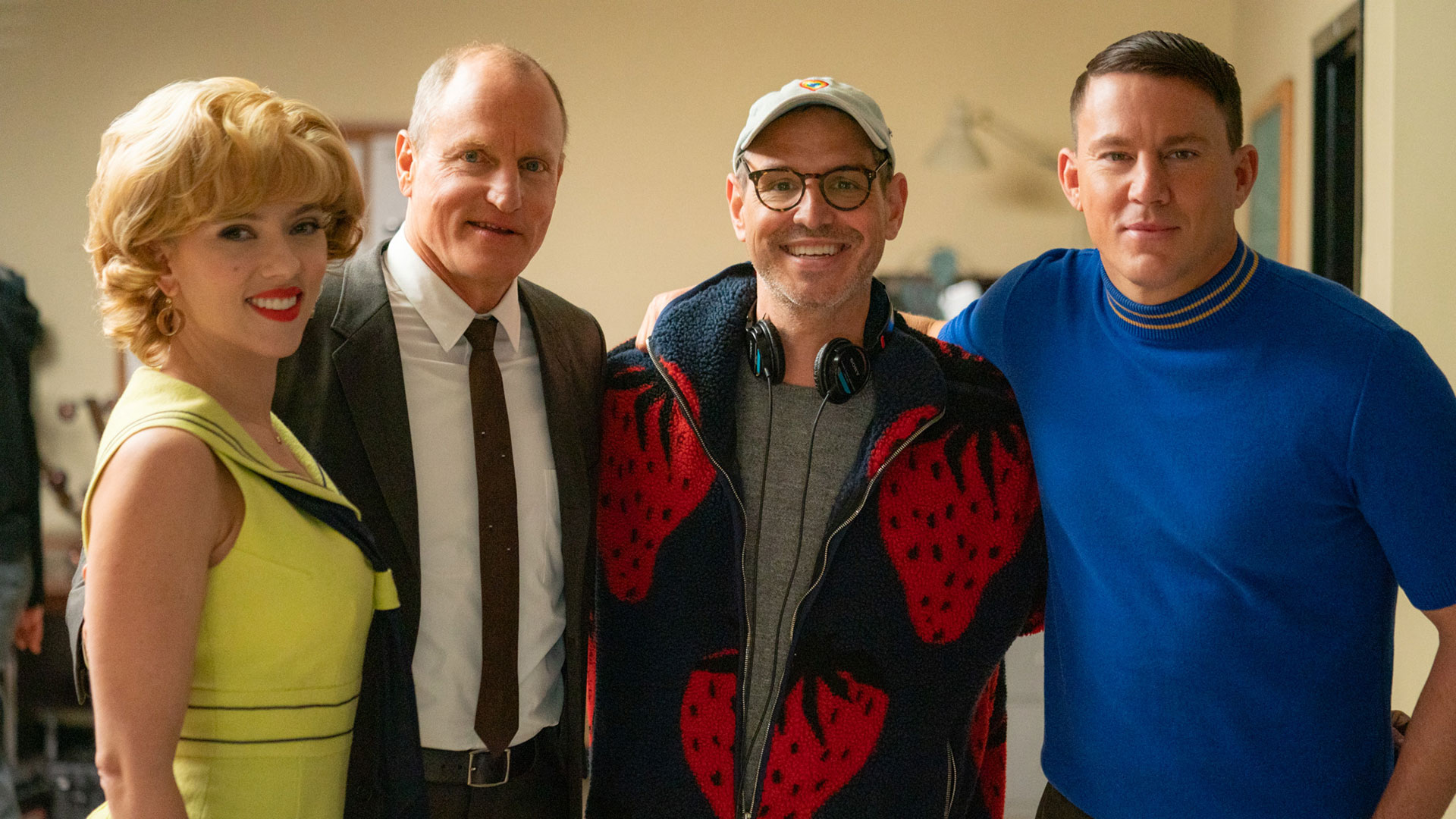
collectSPACE spoke with Berlanti about the film, the attention that he, his cast and crew paid to recreate the past and his experience filming at NASA.
This interview has been edited for length and clarity.
collectSPACE (cS): How much did you know about the Apollo 11 mission before making "Fly Me to the Moon"?
Greg Berlanti: I was aware of a lot of the Apollo docs [documentaries] and what has been in the books I have read through the years.
The very first picture that I bought my son when he was born eight years ago was a life-sized photo of Neil Armstrong's spacesuit. That was the first thing I bought for his room. So, on my very first job interview for this movie, I showed them a picture of what was hanging in my son's room to show what my own real interests were in participating in this.
cS: You had the benefit of working with NASA, which generally requires that the space agency have script approval. Were there any notes from NASA that ended up making changes to the script, or the way that you filmed the movie?
Berlanti: Nope. I mean, they had suggestions every step of the way, but they were for accuracy. None of them were material in that they affected or impacted the characters or what we were trying to say, and I think that's because, as people see the movie, they'll see our story sits right next to history.
That's the fun of doing historical fiction. The history is happening here and our story is kind of happening over here, on the sidelines. It's the kind of "Waiting for Godot," if you will, that's happening off to the side. And where we choose to touch down into history, I tried to be as wholesome and as accurate as possible.
Related: NASA's moonwalking Apollo astronauts: Where are they now?
Breaking space news, the latest updates on rocket launches, skywatching events and more!
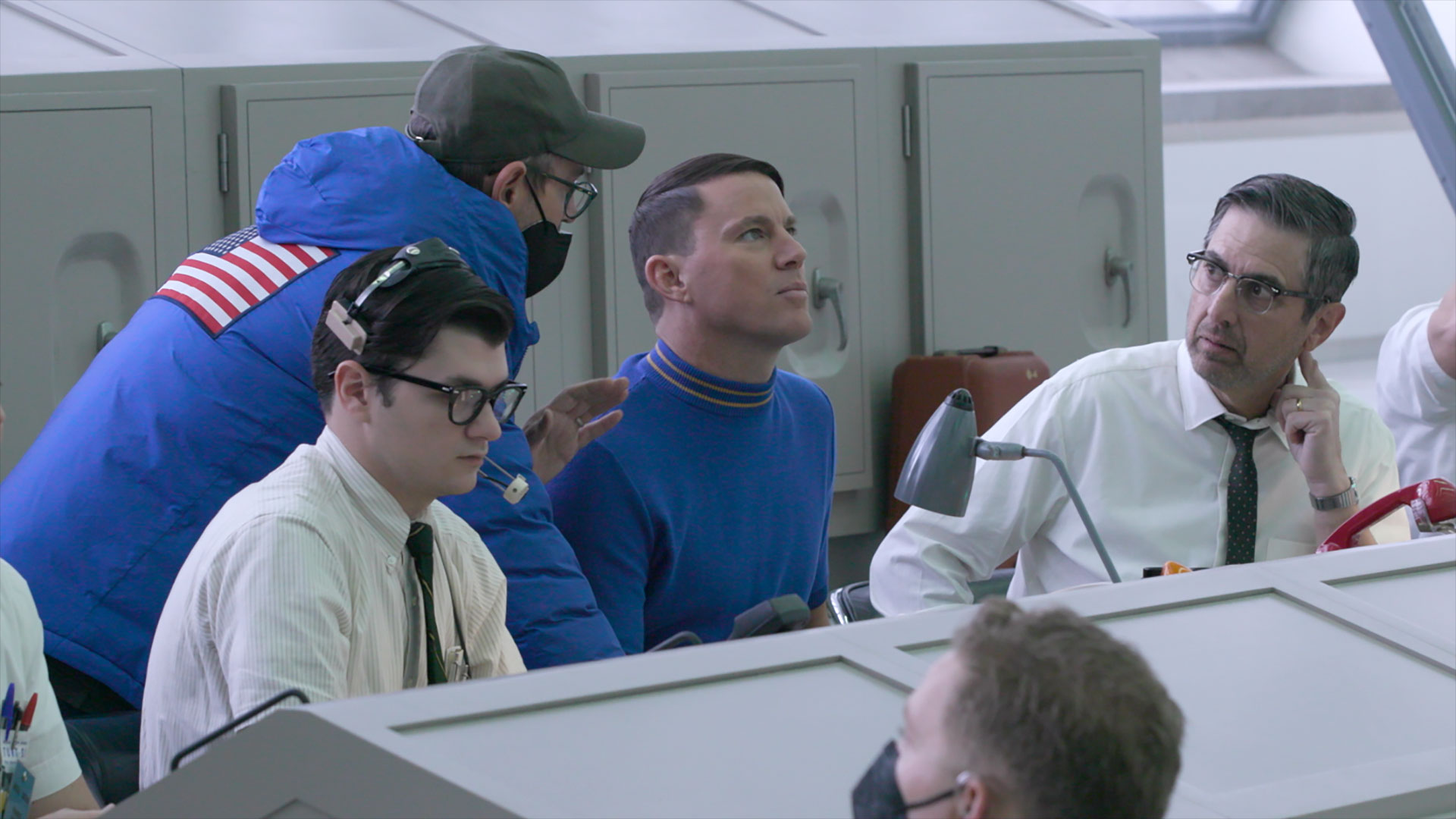
cS: One maybe unusual aspect of "Fly Me to the Moon" is where you "touch down." While critical to the lead-up to the launch of Apollo 11, Kennedy Space Center was done with most of its work when the Saturn V rocket cleared the tower and control was handed off to Houston.
Berlanti: We got to construct a full-scale replica of the firing room from where the rocket is launched.
When you go down to Kennedy Space Center today, there is a smaller version of the room, and they simulate the Apollo 8 launch day. I took out my iPhone and shot every single bit of it and then took that with me and said to the crew, "Now we're going to do it large scale, full size."
We put the whole room on rockers, and then we brought in all our extras, all of our background and everybody. We had all the video screens aligned in real time in camera. So everything played as though you were at the actual Apollo 11 launch.
cS: Beyond your iPhone pics, what else did you use for reference?
Berlanti: I would say that the biggest reference for us was the "Apollo 11" doc that came out post-"First Man" and repurposed a lot of the 65-millimeter footage that NASA shot with all their state-of-the-art equipment. There are still hours of that has not been pored through by the public or repurposed. So we used a lot of that footage as well.
There are these shots and moments in it, where you see that everyone in the firing room — the second they're done and Houston takes over — they all grab their binoculars and they turn and look at the window. So we get to have that in the film and so many details like that.
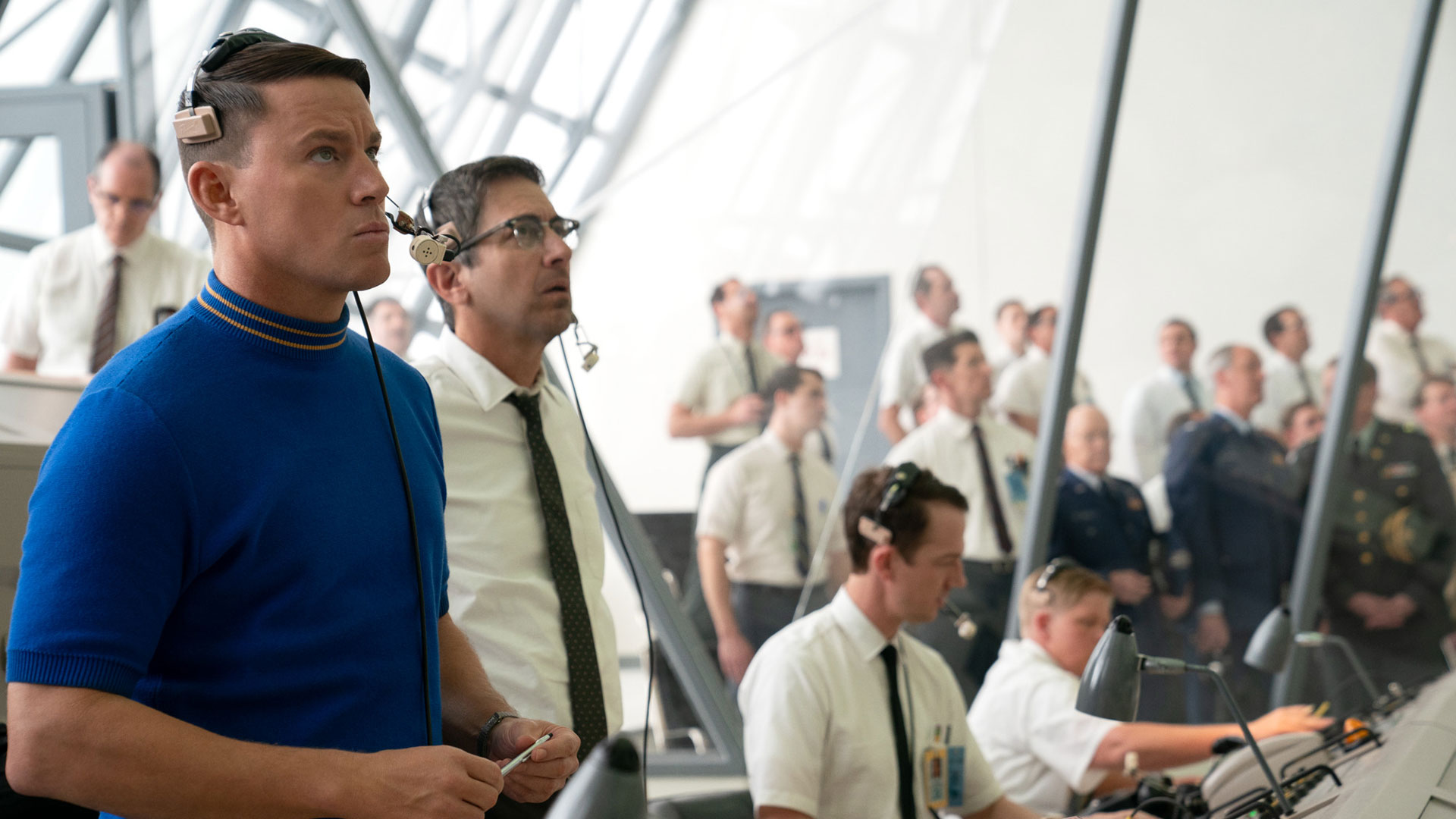
cS: Real-life Apollo flight director Gerry Griffin served as one of your technical consultants and has a cameo in the background of the firing room. Are there other real-life Apollo veterans who moviegoers should look out for in the film?
Berlanti: Yes, Frank Hughes. He trained the astronauts on the LM [lunar module] simulator, and so he had quite a few stories to share and was there for us on the days we were filming the astronauts going down to the moon. It was for a different scene, but I needed some extras so I asked him if he would come be an extra and we have a great shot of him in it as well.
cS: As shown in the trailers, the film includes scenes of a faked moon landing. But you also recreated scenes from the actual Apollo 11 mission. How difficult was it to film a lunar landing that could be passed off as the real thing?
Berlanti: When I read the script for the first time, it was the most daunting thing I had ever read. And I thought to myself, I don't know if I could do this. Without giving away too much about the film, you watch the real and fake moon landings at the same time. So for us to achieve what we needed to achieve, we had to do it all with 1969 technology, not with what we have today.
So for our fake moon set, it's actually as they would have constructed it in 1969, which means one giant light that simulates the sun that has to be high enough and far enough away and a set big enough that you're going to be at the right angle or it's going to cast all these wrong shadows. Additionally, there's going to have to be a backdrop that's far enough away that it's going to fall off, so our set was really the size of a baseball field and about five stories high.
And you can just imagine how many grains of sand I looked at to simulate the same dust and touchdown of each step so that it wouldn't look different because, again, we're cutting between real footage that was shot in real time in camera and stuff that was broadcast, and you're seeing all the different cameras all at the same time and you're seeing the fake and the real at the same time.
And, because I didn't know which sections of the moonwalk I wanted to use and cut away from, we had the two stuntmen who played our astronauts who had to train with choreographers for about three weeks to get two and a half minutes [of footage] out of the two and a half hours of the walk on the moon.
And then you throw in the cameras, which, again, for the the joy of the audience, we wanted it to be in camera. I didn't want to just burn stuff in afterwards; I think in a lot of '60s films, you see things burned in and they feel not real. So a lot our video work is happening live, while we were shooting.
So I wouldn't even be able to express the number of hours and time that actually went into the consideration of all those things.
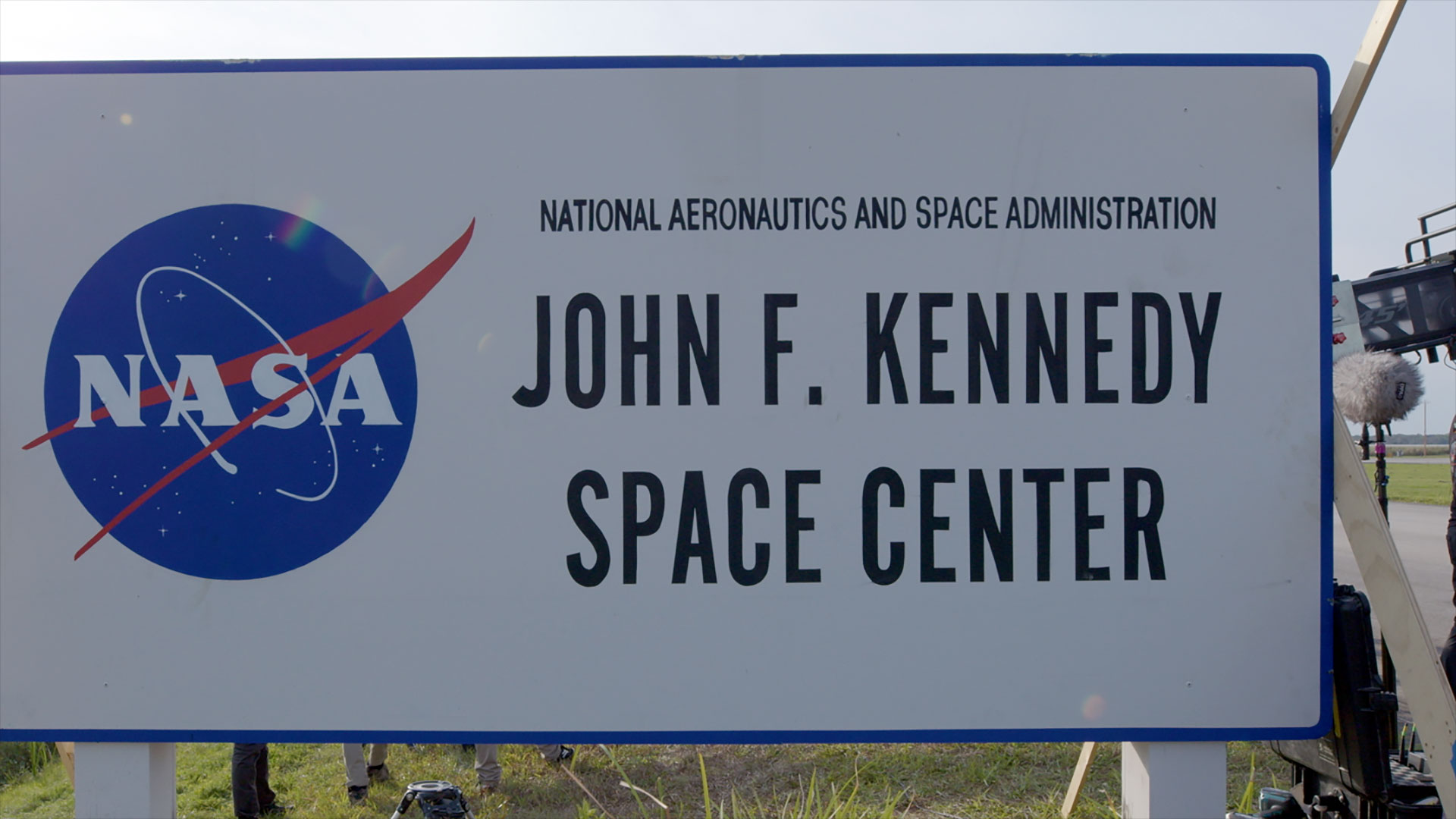
cS: So, do you feel you were successful? Did you fake the moon landing?
Berlanti: I think the cornerstone of that question that is interesting is that there are a lot of shots in our movie that were filmed at Kennedy Space Center. I think there may be more scenes than there are in any narrative movie ever for a Hollywood studio. And there are many shots of the VAB [Vehicle Assembly Building], and it's so beautiful, so gorgeous and it feels like we're in such a world right now where real stuff feels fake.
I can't tell you the number of times I've worked on a show or a movie where something is so gorgeous that it looks fake. You really want these imperfections. That's the problem with modern technology: the human eye, like, wants flaws.
Just look at the original footage from '69. The more that you can capture all of that information and everything, the harder it is to simulate it.
Click through to collectSPACE for behind-the-scenes video from the making of "Fly Me to the Moon."
Follow collectSPACE.com on Facebook and on Twitter at @collectSPACE. Copyright 2024 collectSPACE.com. All rights reserved.
Join our Space Forums to keep talking space on the latest missions, night sky and more! And if you have a news tip, correction or comment, let us know at: community@space.com.

Robert Pearlman is a space historian, journalist and the founder and editor of collectSPACE.com, a daily news publication and community devoted to space history with a particular focus on how and where space exploration intersects with pop culture. Pearlman is also a contributing writer for Space.com and co-author of "Space Stations: The Art, Science, and Reality of Working in Space” published by Smithsonian Books in 2018.
In 2009, he was inducted into the U.S. Space Camp Hall of Fame in Huntsville, Alabama. In 2021, he was honored by the American Astronautical Society with the Ordway Award for Sustained Excellence in Spaceflight History. In 2023, the National Space Club Florida Committee recognized Pearlman with the Kolcum News and Communications Award for excellence in telling the space story along the Space Coast and throughout the world.

